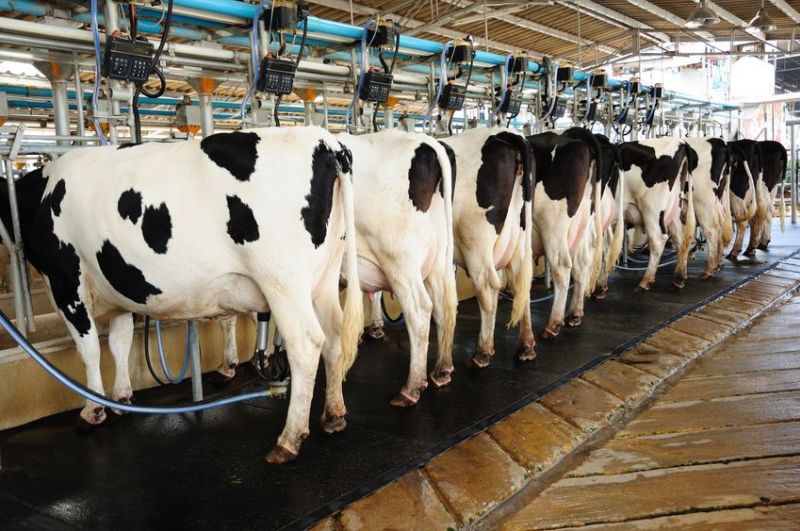
A report outlining the case for UK dairy farming to maintain access to EU labour in the short term, and improve the pipeline of domestic labour in the long term, has been presented to government.
The report was presented to Defra's Access to Labour Team by the Royal Association of British Dairy Farmers in London on Tuesday (3 October).
Presenting the report, policy director of RABDF Tim Brigstocke said it had concluded that UK dairy farming sector labour requirements were specifically about permanent, skilled roles.
Current reliance on EU labour would mean an almost "catastrophic failure" within the sector should short term access to overseas workers not be maintained.
It comes as news that only 4% of UK adults would consider all key aspects of working on dairy farms personally acceptable.
This has spurred the industry to say that it must not 'fall off a cliff edge' due to a lack of labour.
'Falling off a cliff edge'
“However, with our latest survey estimating 56% of dairy farmers currently employ workers from the EU, it is not resilient either for us to continue to rely so heavily on overseas labour in the long term,” Mr Brigstocke said.
“So we want to look at how we can keep dairy farming from falling off a cliff edge while addressing the issues that turn off UK workers from seeking a career in the sector.
“Some of this will involve farmers and those in the supply chain taking a long hard look at why the reputation of dairy farming is as it is.”
Further conclusions surrounding this paper suggest that the specific need for labour on dairy farms must be considered within Brexit negotiations and migration targets.
The report says that measures to secure continued access to semi-skilled and skilled European labour must be in place to avoid disadvantaging UK dairy farmers and impacting on the economic viability of the sector, UK food and nutritional security, and farmer and animal health and welfare.
'Willingness to work'
In 2016, 93% of dairy farmers polled by the RABDF said the use of EU labour had been a successful option for their farm.
83% of respondents said they employed EU labour due to ‘willingness to work’, and 63% because of insufficient UK staff availability. 60% expected their EU staff to remain for three or more years.
The farmers polled in 2016 also said 50% of their workers were highly skilled or mainly highly skilled in dairy and able to do most of the jobs on a dairy farm; 85% had staff from Poland and 23%, from Romania.
However, Defra Secretary Michael Gove spoke about the issue of farmers having restricted access to labour at a fringe meeting organised by the Countryside Alliance at the Conservative party conference on Monday (2 October).
He said low-skilled migrants from the EU will still be able to come to Britain to work in seasonal jobs after Brexit.
Mr Gove - a leading figure in the Vote Leave campaign - said EU farm workers should be able to sign up to a seasonal workers scheme after Brexit.
